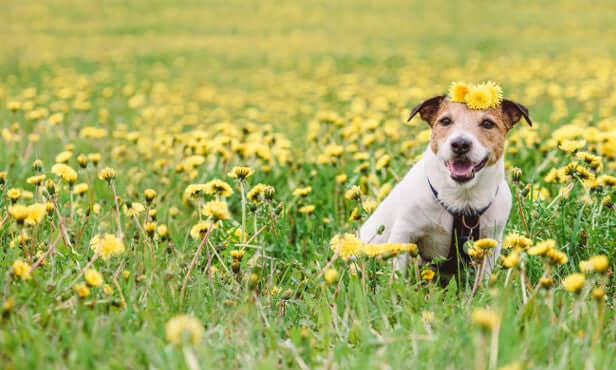They might not be traditional pets, but beekeeping is on the rise – just ask Jason Statham.
Celebrating World Bee Day on May 20th brings to light the pivotal role bees play in our ecosystem and our daily lives. Bees are not just producers of honey; they are the linchpins of biodiversity and a critical component in the agricultural process through their pollination efforts.
The Crucial Role of Bees
Bees are master pollinators. They are responsible for the growth of a wide array of crops by transferring pollen between flowering plants, ensuring the cycle of growth, fruit, and seed production. This pollination process is not only vital for the growth of many of the foods we eat—fruits, vegetables, and nuts—but also for the plants that feed the animals we depend on for meat.
The decline of bee populations globally poses a significant threat to global food security. Pesticides, habitat loss, climate change, and pollution are among the major challenges bees face today. The impact of these challenges on bees affects us directly by threatening our food supply and the biodiversity of our planet. Let's delve deeper into these threats and understand their impact on bees and, subsequently, our ecosystem.
- Pesticides
Pesticides pose one of the most direct threats to bee populations. These chemicals, intended to protect crops from pests, can be lethal to bees or disrupt their navigational abilities, making it difficult for them to find their way back to the hive. Neonicotinoids, a class of insecticides, have been particularly controversial due to their high toxicity to bees. Exposure to these chemicals can result in immediate death or sublethal effects, such as impaired learning and foraging skills, reduced fertility, and weakened immunity. The widespread use of pesticides not only diminishes bee populations but also affects their ability to pollinate, impacting crop yields and biodiversity.
- Habitat Loss
Habitat loss due to agricultural expansion, urban development, and deforestation strips bees of their natural habitats, reducing their sources of food and nesting sites. This loss forces bees to travel longer distances to find pollen and nectar, increasing their energy expenditure and exposure to dangers. Habitat fragmentation also limits bees' ability to migrate, leading to decreased genetic diversity and increased vulnerability to diseases and environmental changes.
- Climate Change
Climate change affects bees in numerous ways. Alterations in weather patterns can disrupt the synchrony between bees and the blooming of plants on which they depend for food. Warmer temperatures may encourage bees to emerge earlier in the spring before sufficient food sources are available, leading to starvation. Additionally, extreme weather events, such as droughts and floods, can destroy habitats and food resources, further threatening bee populations.
- Pollution
Air pollution interferes with the scent molecules released by plants, which bees rely on to locate food. Pollutants can mask the floral scents, making it harder for bees to find nourishment. This not only reduces the efficiency of bees as pollinators but also affects their ability to communicate and navigate within their environment. Moreover, water pollution with pesticides and other chemicals can poison bees directly or through the contamination of their food sources.
The Downstream Impact on the Ecosystem
The decline in bee populations and their pollination capabilities has far-reaching consequences for the ecosystem and human survival. Beyond the obvious impact on food crops, which rely heavily on bee pollination, the reduction in bee activity affects wild plant populations, leading to decreased biodiversity. This, in turn, impacts animals that depend on these plants for food and habitat, leading to a cascade of effects throughout the food chain.
The loss of bees and other pollinators could lead to the decline of plant-based natural resources, such as fibers, oils, and other raw materials, impacting industries and livelihoods. Additionally, the decreased production of fruits, nuts, and vegetables would not only affect human nutrition and health but also the economic stability of farming communities worldwide.
Addressing the threats to bees requires a multi-faceted approach, including policy changes to regulate pesticide use, conservation efforts to preserve and restore natural habitats, and initiatives to mitigate the impacts of climate change and pollution. By protecting bees, we safeguard our biodiversity, food security, and the health of our planet.
The Rise in Beekeeping
In response to the threats bees face and their importance to our survival, there has been a significant increase in the number of people taking up beekeeping. This surge in interest is not only among those in rural areas but also among urban dwellers who are setting up beehives in their backyards and on rooftops. Beekeeping serves multiple purposes: it supports the conservation of bees, provides beekeepers with hive products like honey and beeswax, and is a source of income for many.
Beekeeping also serves as an educational tool, raising awareness about the importance of bees and the challenges they face. It encourages communities to take action in preserving and creating bee-friendly environments by planting native flowers, reducing pesticide use, and supporting local beekeepers.
How You Can Help
World Bee Day is an excellent opportunity to spotlight the critical role of bees and what we can do to support them. Here are a few actions everyone can take to contribute to the preservation of bees and other pollinators:
- Plant nectar-bearing flowers in your garden or community spaces.
- Support local beekeepers by purchasing honey and other bee products from them.
- Educate yourself and others about the importance of bees and the challenges they face.
- Advocate for policies and practices that support bee health and biodiversity.
Conclusion
Bees are indispensable to the health of our planet and our survival. The increasing interest in beekeeping is a positive sign that more people are recognizing the importance of bees and taking steps to support them. On World Bee Day, let's commit to actions that ensure the health and survival of these essential pollinators. Through collective effort, we can make a significant impact in conserving bees and, by extension, our environment.
For more detailed insights into the importance of bees and how to support them, check out the resources from the United Nations Environment Programme and Friends of the Earth (UNEP - UN Environment Programme) (Friends of the Earth).
More stories



